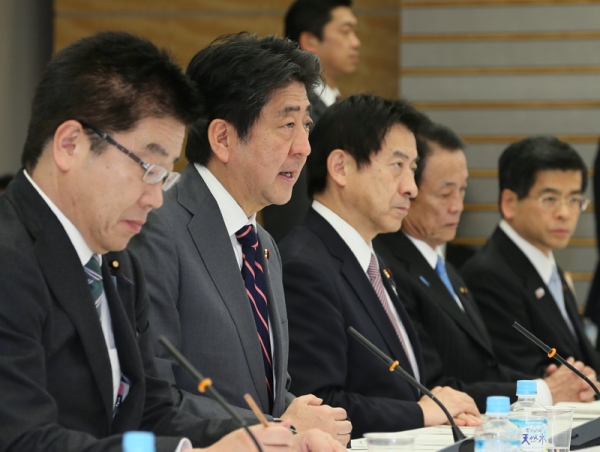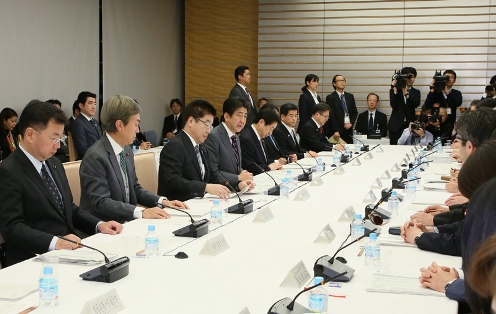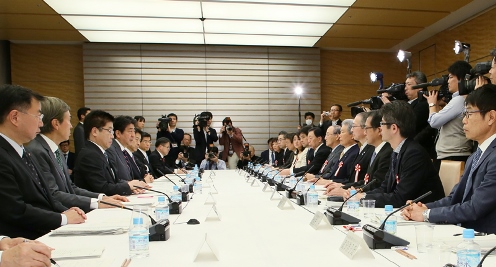Home > News > The Prime Minister in Action > February 2017 > Council for the Realization of Work Style Reform
The Prime Minister in Action
Council for the Realization of Work Style Reform
February 1, 2017
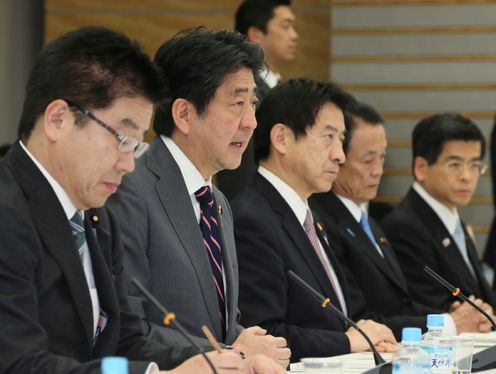
Photograph of the Prime Minister making a statement (1)
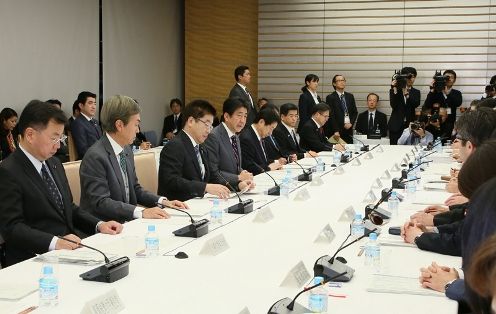
Photograph of the Prime Minister making a statement (2)
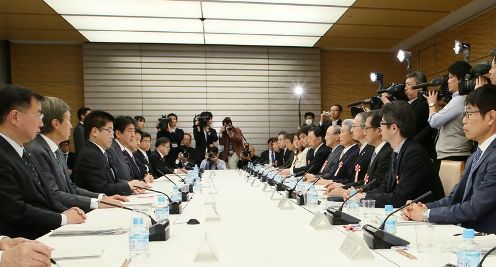
Photograph of the Prime Minister making a statement (3)
[Provisional Translation]
Prime Minister Shinzo Abe held the sixth meeting of the Council for the Realization of Work Style Reform, at the Prime Minister’s Office.
At the meeting, there was discussion on equal pay for equal work and correcting the practice of working long hours.
Based on the discussion, the Prime Minister said in his address,
“Today we have discussed the necessary legal systems for equal pay for equal work and correcting the practice of working long hours.
We must eliminate irrational gaps in the treatment of workers through the introduction of equal pay for equal work, which will ensure that people are evaluated appropriately based on their performance and ability, regardless of whether they are regular or non-regular workers. This will also make it possible for people to work with a sense of motivation. To that end, it is vital that there be discussion among labor and management within companies that includes regular and non-regular workers.
We heard many opinions today on the necessary legal systems for equal pay for equal work. The important thing is to ensure that there are legal systems in place such that workers seeking a correction in an irrational gap in treatment are ultimately able to argue their case in court.
I request that you deliberate the necessary legal systems for ensuring that workers are not disadvantaged in conversations among labor and management because of information that only the corporate side has, and that workers are not prevented from taking their cases to court, towards the compilation of an action plan for work style reform.
Concerning efforts to correct the practice of working long hours, it is indispensable that we amend laws to set specific limits on the maximum overtime permitted, with penalties attached to those limits.
In deciding what the maximum amount a particular person can work should be, we need to ensure that people maintain a level of health that is acceptable under the standards for the recognition of occupational health issues related to brain and heart disease, the so-called ‘karoshi standards.’ In addition, there needs to be debate on this issue from a variety of perspectives, including creating a society in which women and the elderly can work with ease, and improving work-life balance.
We also must take into account the fact that if we correct the practice of working long hours, managers will become more interested in how they have their employees work for them, and labor productivity will improve.
At the next meeting, after having the Secretariat present a draft plan, I would like to have more concrete discussion on how to amend the relevant laws.
The practice of working long hours is a structural problem, and will also require the reconsideration of company cultures and transaction customs. On this point, I request the leadership of the heads of the business community, as well as further initiatives from relevant ministers.
As for Premium Friday (the practice of having shorter working hours on the last Friday of each month), I hope to gain the understanding of the Diet for this, and if possible, I would like to adopt this practice as well. Thank you for your continued cooperation.”

